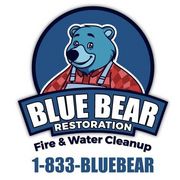What Homeowners Need to Know About Frozen Pipes

Winter is an ideal time to get cozy at home, and it's important to focus on seasonal maintenance to ensure everything stays safe and comfortable. As a new homeowner, you may be unfamiliar with the ways freezing temperatures can affect your plumbing. Frozen pipes are at risk of bursting and leaving you needing water damage repairs. Here is a brief guide outlining how frozen pipes happen and what you can do to prevent them.
What Happens When a Pipe Freezes?
Pipes move water from a source to your faucets and appliances. Although most lines are protected from cold temperatures, the ones that run through uninsulated areas are vulnerable to freezing when temperatures hover around 20 degrees Fahrenheit. As the pipes freeze, the water inside them freezes too—and the resulting ice expands. The pressure from this expansion can eventually cause a pipe to crack or even burst.

A burst pipe allows large amounts of water to leak; if this occurs in a hidden area, like behind a wall or in a kitchen or bathroom cabinet, you might not catch the problem right away. This increases the risk of widespread moisture problems, including structural defects and mold and mildew growth that will likely require professional water damage repairs.
How Can You Prevent Frozen Pipes?
The first step to preventing frozen pipes is to know where the lines are located. Having your plumbing inspected annually ensures the pipes are in good condition and teaches you where they enter the house and run to each room. This knowledge makes it easier to them from freezing. If some pipes pass through a garage, for instance, keep the door closed during winter to block out cold wind. You can also apply thermal blankets and insulating tape for added protection in unheated areas, such as the basement, attic, or crawlspace.
Since indoor plumbing can still get cold, remember to be proactive when temperatures are expected to drop well below freezing. Open the cabinets under the kitchen and bathroom sinks to expose the pipes to your home's heated air. Moving water is less likely to freeze, so let the faucets drip overnight. If you have concerns about a specific room, use a small space heater to maintain a comfortable temperature.
If you're struggling with water damage from a frozen pipe, you can count on Blue Bear Restoration in Rochester, NY. This family-owned water damage repair company restores homes across Monroe County and prioritizes continuing education to ensure their technicians provide the highest-quality solutions. Their services are available 24/7, and they'll even consult your insurance company for you. Visit their website to learn about their restoration services, and call (833) 258-3232 for a free estimate.
About the Business
(64 reviews)
Have a question? Ask the experts!
Send your question

